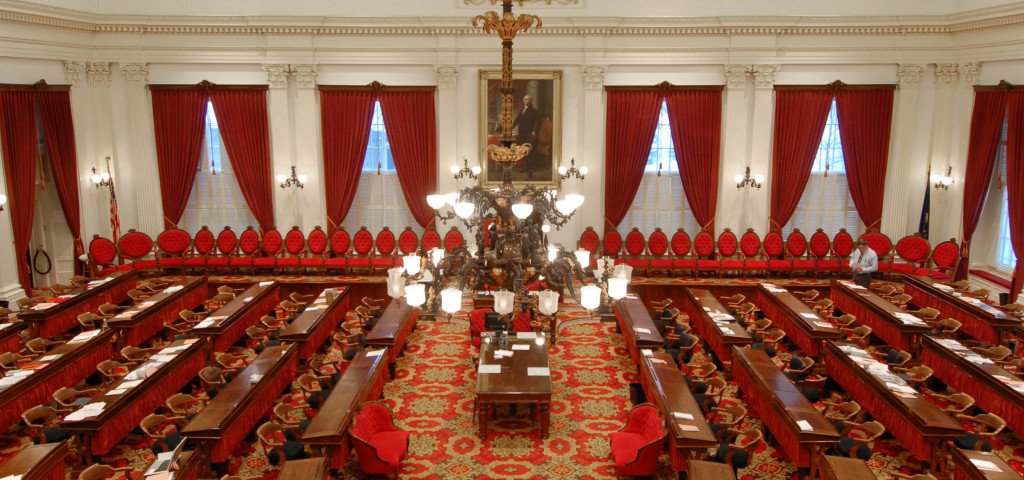Vermont lawmakers will reconvene in Montpelier for the second half of the legislative biennium on Jan. 3, 2024. As usual, the House Committee on Health Care and the Senate Committee on Health and Welfare will examine bills that address mental health.
Rep. Lori Houghton chairs the former. She plans to keep tabs on several major, ongoing projects at the Vermont Department of Mental Health, including mobile crisis services, emergency department alternatives, and peer certification.
“I kind of classify it as accountability,” Houghton said. “We need to make sure that we’re not just passing legislation and saying, ‘Yeah, go do it,’ and not following up with what’s happening.”
Deputy Commissioner of Mental Health Alison Krompf also spoke of the unusual quantity of new programs and activities that received funding last year. She hinted at a focus on refinement in 2024, not on new proposals.
“If there’s shifts in language or things that can make things easier in a small way, we’re going to look at that and open it,” Krompf said. “But we’re likely not going to see major initiative and implementation from the state until we can get everybody’s footing and people breathing again out in the field.”
Still, Houghton expects a full plate for legislators, who’ll likely return to the topic of forensic mental health, a prominent theme in 2023. With Act 27, the legislature authorized DMH, by next summer, to convert a nine-bed wing of the Vermont Psychiatric Care Hospital into a locked residence exclusively for patients committed by criminal courts.
“We did not formally have it in our committee, but our committee did vote to support it,” Houghton recalled. “Obviously, there’s still a lot of unanswered questions, and that’s what a group of individuals now are working on.”
This winter, the Agency of Human Services will present several committees, including Houghton’s, with information about the forensic facility’s potential programming. Depending on DMH’s recommendations, it could include a competency restoration program, which would aim to make psychiatric patients who’ve allegedly committed crimes fit to stand trial.
“I think that will fall mostly in Judiciary within the House, with us taking a look at whatever they think is appropriate,” Houghton said.
In recent years, community mental health centers and psychiatric hospitals have both struggled to recruit and retain employees. They’ll likely look to the legislature for extra support in 2024.
“I wish I had some unique solutions. It’s going to come down to money,” Houghton said. “ It’s going to take us looking at licensing, which [the Office of Professional Regulation] is looking at now. And we have a social work compact interstate compact bill on our wall that I hope to pass this year. It’s nothing that’s going to be fixed right away, but it’s something we have to continue to work on every year.”
In 2023, the legislature also passed a pair of bills intended, in part, to protect community mental health workers (in Act 25) and hospital employees (in Act 24) from violence alleged to result from mental health crises. Both codified new responsibilities for law enforcement. According to Houghton, the problem may need more work.
“I think, overwhelmingly, we need to ensure that our healthcare workers are safe. And I’ve talked to several people who work in emergency rooms and administrators within some of the hospitals, and I think it hasn’t stopped the violence,” Houghton said. “I do anticipate having testimony on that to see where things stand and what else we might be able to do.”
Houghton believes that Act 45, a new suicide prevention law that added restrictions on firearm purchases, may have had a stronger positive impact so far. She thinks legislators will want to build on what she sees as its success by adding a public education component – “specifically, around locking up our guns” – to the legislation.
“I do know of two situations I have been told about where a Vermonter attempted to purchase a gun and was unable to, and it did save their life,” Houghton said, referring to Act 45.
In January, the legislature will receive a final set of recommendations from the Mental Health Integration Council, which it created in 2020. Houghton expressed an eagerness to see them. She also mentioned looking forward to checking in on the Vermont Blueprint for Health, which last year received funding for a two-year pilot program to help primary care doctors address mental health and substance use issues.
“We’ll be doing a lot of follow-up on that to see if it’s helping,” Houghton said. “What I’m hoping that we’re all moving towards in Vermont and at the federal level is finally looking at physical health, mental health, and substance use disorder in one.”

